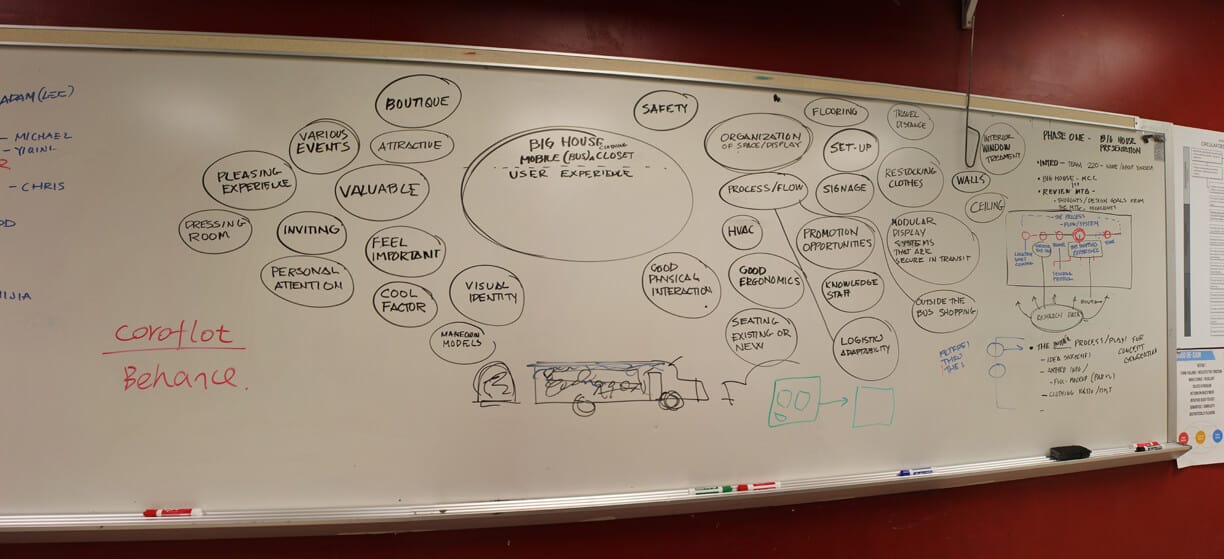Industrial Design Students Turn School Bus into Mobile Clothing Closet

If BigHouse Foundation has its way, the wheels on this bus will go all over Alabama bringing its Mobile Clothing Closet to foster families and children. Professor Randy Bartlett’s fourth year industrial design studio took on the challenge of turning a school bus in a user-friendly retail space. What they created was a school bus with a boutique attitude.
For six years, BigHouse Foundation of Opelika has been working to meet the needs of children in foster care and their foster families. One of the most immediate and continuing needs is clothing. So BigHouse created a Mobile Clothing Closet that families can come to once a month for free, new and gently worn clothes. Currently they have to pack up the clothes that they take around the state and then unpack them at each location. Micah and Blake Melnick, Big House Foundation founders, wanted a better—and more dignified—experience for the families and children and a less labor intensive experience for the staff. They thought a school bus retro-fitted like a store and that could be stocked ahead might be the solution. But how could a school bus become a welcoming, retail environment?
The industrial design students studied retail stores in the Auburn/Opelika area for ideas of what made a boutique “cool” and came up with ways that the interior of the bus could mimic a store. They created a modular system that could be modified for the type of clothes—from infant’s clothing to prom dresses–that BigHouse might be taking to a particular location. This system allows for onboard storage and is quickly adaptable so it always looks well stocked, and it can function with just two staff on board. Borrowing ideas from the RV world, the students came up with power generating and heating/cooling ideas for the bus. They even suggested artwork for the ceiling, track LED lighting, and laminate for the floor.
“Every aspect of this project allowed the students to apply ‘design thinking’‒from loading to unloading the bus to creating the total shopping experience for the foster parents and children,” says Bartlett, Professor and Program Chair of Industrial design. “The reality of foster parenting touched an emotional side of the students during the design process, which led the students to filter every idea and concept through three overlapping filters: one, create a ‘boutique feel,’ secondly, offer a ‘valuable experience’ for the foster parents, and third, maintain a unique ‘cool factor’ that the foster children would enjoy.”
Now that industrial design students have shown how the Mobile Clothing Closet bus could become a reality, BigHouse Foundation is making plans for a Kickstarter campaign to procure and outfit a bus. To learn more the BigHouse Foundation, click here.
See more in:
Industry Collaboration,
Service Learning,
Student Work
Related people:
Randall Bartlett